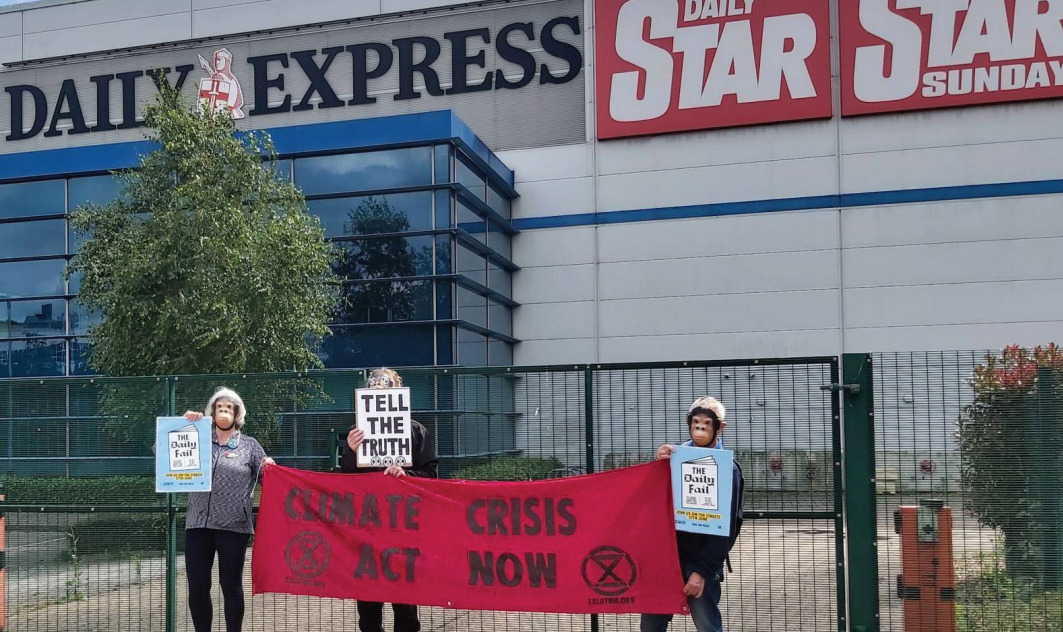Newspaper publishers introduced emergency measures last week ahead of protests by Extinction Rebellion targeting both publishers and major news sellers.
Protests took place outside the major offices of newspapers, including the Mail, Express, Sun and Times on 27 June, despite pre-emptive raids and arrests by the Met Police against organisers the day before.
A Scotland Yard spokesperson claimed the ‘proactive action’ was “to prevent and reduce criminal disruption, which we believe was intended for direction at media business locations over the weekend.”
The protest group is also encouraging followers across the UK to sabotage the front covers of ‘climate delaying’ newspapers in stores with stickers. However, the climate activists urged supporters carrying out the defacements to “aim for the big supermarket chains, rather than small local shops”.
Retailers praise wholesalers’ response to Extinction Rebellion
The message followed anger from newsagents last September when their sales were severely impacted by Extinction Rebellion’s blockade of news-printing sites across the UK.
Commenting on its renewed targeting of newspapers in stores this week, a spokesperson from Extinction Rebellion told Better Retailing: “We don’t want to disrupt smaller businesses. The stickers were a way of engaging people who maybe can’t make it to London to take action in their local areas.
They can print the stickers and go and do it themselves, but we don’t want to harm independent retailers, which is why we’ve got that message.”
While the protests at the weekend were centred around newspaper offices, publishers and wholesalers feared a repeat of last year’s actions. Better Retailing understands that publishers activated emergency plans drawn up after the blockade last September.
The plans were designed to minimise supply chain disruption in the event that news-printing sites were again targeted by protesters.
Extinction Rebellion: damage to small shops ‘worth it’ to avoid ‘civilisational collapse’
Sources confirmed the plans included newspaper inserts being delivered to stores earlier than usual, site-sharing agreements and creating extra capacity at printers.
NFRN vice-president and news committee chair Muntazir Dipoti said: “Some retailers rely on news for their business and we really don’t want to see this kind of thing happening again.
“We’ve heard that they want to target supermarkets, but they need to think more about who their actions affect. There’s a whole supply chain that relies on newspapers and it doesn’t just affect the publishers.
“The NFRN has worked closely with Menzies and Smiths and the publishers to put contingency plans into place to try to minimise the impact of any action.”
Explore our online archive of RN back issues





Comments
This article doesn't have any comments yet, be the first!